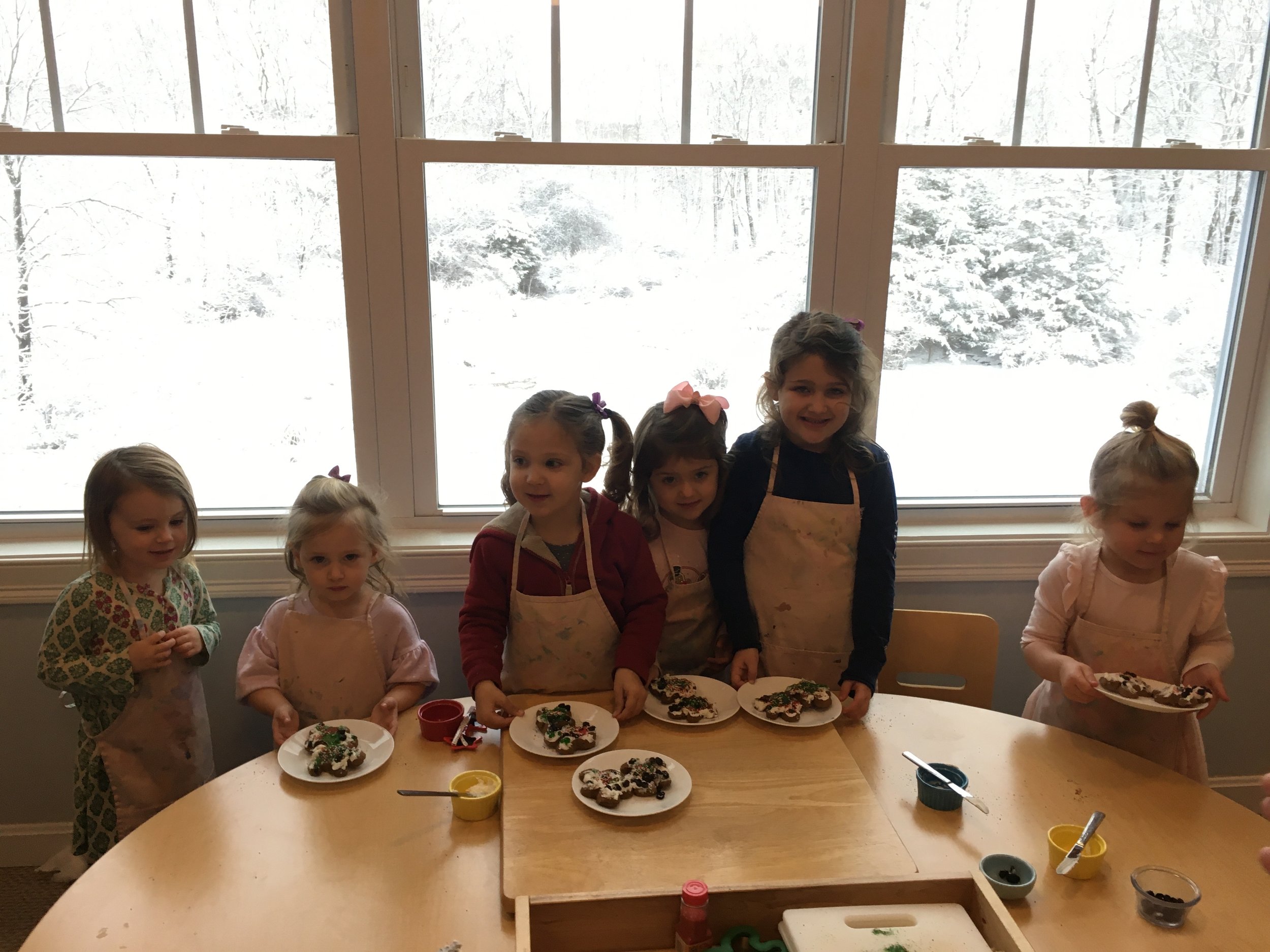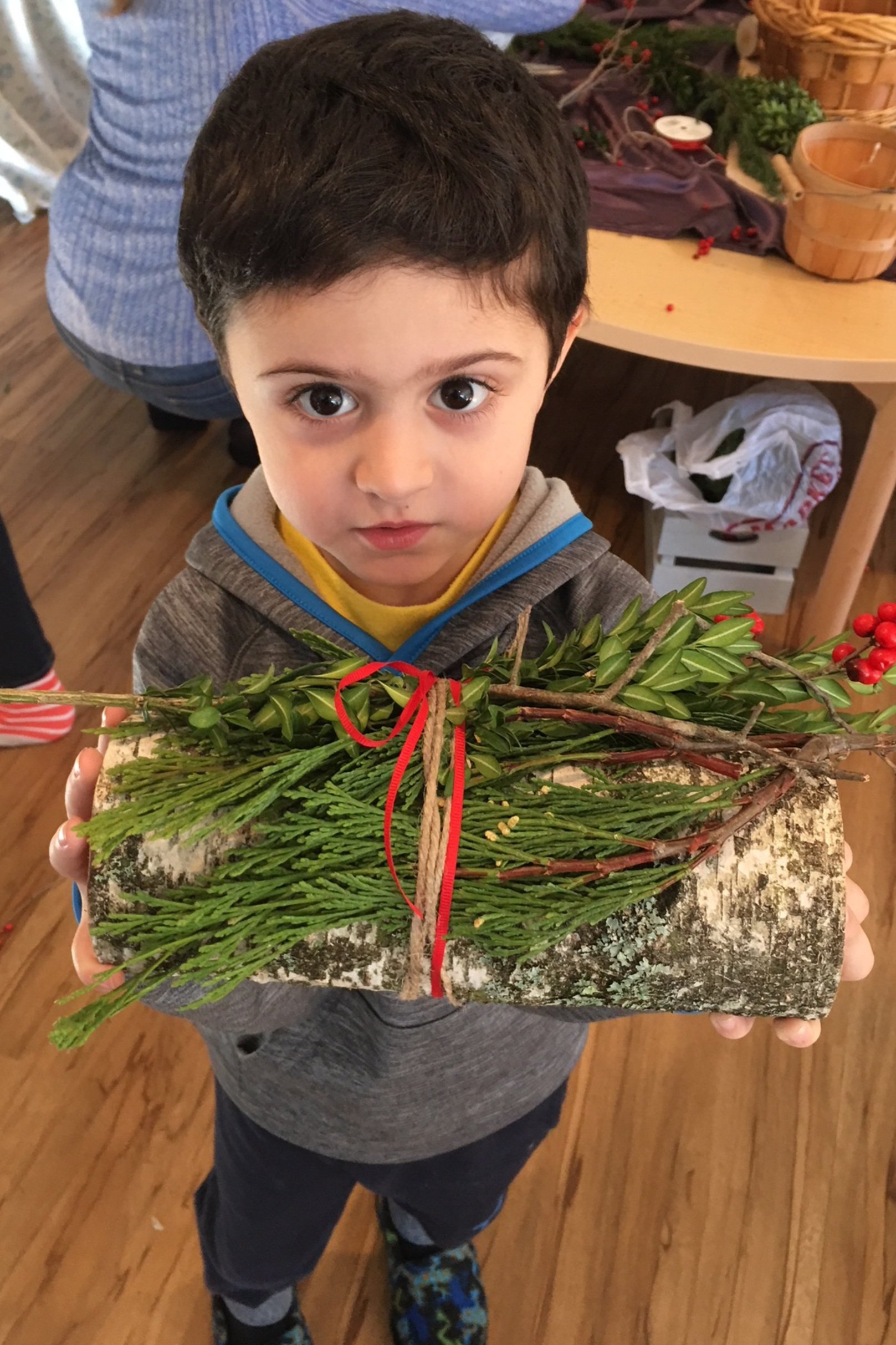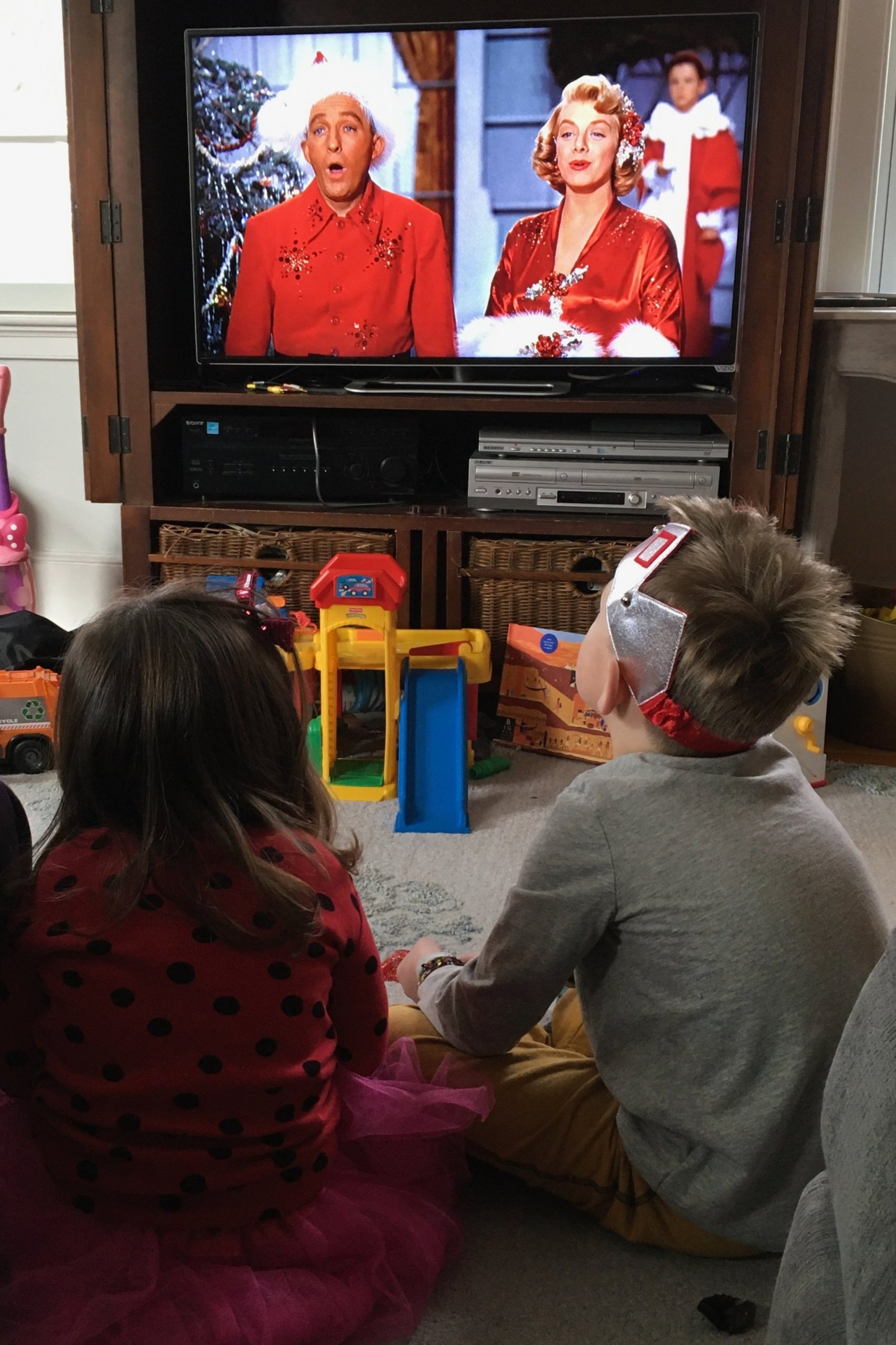How to Simplify This Holiday Season
…because less really is more
‘Tis the season for giving, connection, joy, wonder, warmth…and all too often, absolutely exhausted, overstretched, overstimulated families. Bleary-eyed parents overpopulate their calendars with holiday fun, feel pressure to overdo gift-buying and -giving with too many late nights sending holiday cards, putting together and wrapping special purchases, baking holiday delights... Wired children gleefully partake…before inevitably melting down in spectacular fashion—and by the end of it all, mom and dad just want to sleep. For a week.
This isn’t what this season is supposed to look like—and on the surface, we may not even see this. But behind the scenes, in many households, this is how the bustling holiday season plays out. Whether you’re one of these overloaded families, or a new family preparing to embark on the annual holiday season journey, we’ve got great news for you—you can stop the madness, and it’s all about simplifying.
Simplify Your Expectations
In Simplicity Parenting (a favorite book of ours), Kim John Payne discusses soul fever in children—the emotional equivalent of a physical fever, and something we believe even rings true for adults. “When small (or large) stresses accumulate, you may find your child with a soul fever…They are ‘out of sorts,' not at their best (and quite possibly at their worst)—and they may seem stuck in that frustrated state," Payne says. He advises staying alert to this phenomenon, and taking it as seriously as a physical fever: “slowing down, drawing the child near, suspending normal routine in order to give the child the calm and safe space to untangle their ‘emotional knot’—to return to their best, most balanced self.”
We couldn’t agree more. Throughout our lives it’s vital that we remain alert to what calibrates our families, our children, and ourselves—as well as what sends those delicate balances spinning off-kilter. As parents, when we see and feel those spirals happening, it’s our job to stop the train, unload the extra cargo, rest, and refuel until balance is achieved once more.
Rather than let the holiday season knock your family off its equilibrium and then rush to restore balance, we suggest trying these preventative steps to ensure that never happens in the first place.
STEP 1: BE INTENTIONAL WITH YOUR TIME
When it comes to the people, places, and activities you engage with this holiday season, choose carefully. Traditionally, we all want to please Grandma, Aunt Susie, our spouse’s parents, and our best friends—they invite us to their annual gathering, to bake for their cookie swap, to participate in a gift exchange for the kids, and we always say yes. Maybe that worked when you were single, with no children, but does a bursting-at-the-seams social and activities calendar still work for your family today?
There is no universal right answer to this question—only, what is right for your children, your family, and you. Intentional planning most definitely includes what moms can handle without feeling stressed and undone.
Social Engagements
If you have children under 5 whose peaceful functionality (and therefore yours) hinges on precisely timed naps and bedtimes, guard that schedule. Master the art of a smiling, gracious, “No thank you.” Well-meaning family and friends can unintentionally pressure us into saying yes—not realizing our “yes” not only throws us off schedule for an afternoon, it may just render our household nonfunctional for a week or more. (Can anyone else relate to when mom is in chaos, everything is in chaos?)
Parents of the under-5 set (particularly those with challenging temperaments), take heart—as your children get older, more capable, and independent, you’ll regain some flexibility. The under-5 window is an intense time even with the most agreeable children—and therefore, for those friends and family members you really want to see, it’s a great era to host them (solo!) at your house, so you don’t have to pack, transport, overstimulate, and eventually implode.
On the other hand, if you are blessed with older children or littles who can skip a nap or go to bed late with barely a blip, you really want to go to that party, and it won’t rock your family’s balance, go for it! Just remember—you don’t have to say yes to every invitation. Creating space for yourself and your family to have nothing planned allows you to lean into the beautiful simplicity of downtime—simultaneously giving everyone the gift of recharging, and the room to allow spontaneous family activities and memories to flourish.
STEP 2: SIMPLIFY GIFT-GIVING FOR CHILDREN
Gifts represent both the easiest trap to fall into—over-buying—and the easiest way to save yourself—simplifying. Limiting gift expectations for your children is most effortlessly achieved early, as the older children are, the more they perceive pared down gifts as a loss.
Babies don’t “need” any gifts. Toddlers are so dazzled by holiday lights and singing and seeing family and the simple joy of a cookie…they really don’t need anything either. Though preschoolers are more aware and appreciative of a gift, remember…a little goes a long way.
At these earliest ages, one or two gifts from you to your child is plenty—particularly with an often inevitable flood of parcels from extended family and friends in the baby/toddler years. If that flood arrives, to avoid overstimulation (and underappreciation), a great trick is to dole out the gifts across days or even weeks, which brings with it the added bonus of a well-timed distraction if you need to make a phone call, wash your face, or simply savor a quiet moment.
As your children get older, you may want to add a few more gifts to the list, which is fine, but stick to the goal of simplicity. Maybe you’re reading this, realizing you’ve been in the habit of picking up gifts here and there, tucking them in the closet, and pulling out a monumental, stress-inducing quantity of toys, clothes, gadgets…it’s not too late to rethink your approach. If you can, skip having your kids rattle off holiday lists and try to avoid child-targeted advertising. Instead, for each child, you pick out something they need, something to read, and something just for fun, while beginning to shift the holiday focus away from gifts and toward experiences with loved ones.
STEP 3: BUILD SIMPLE TRADITIONS
Creating simple-yet-special traditions can simplify your life, help you to focus on the relationships and people closest to you, and allow you to enjoy the holidays as much as your children.
…At Home
In this fast-paced, tech-driven, toy-strewn world, it can be so easy to overlook basic ideas when considering festive activities to engage in with your children. A handful of fun ideas we love to get you started:
Make a holiday craft together or ornaments/handmade art for each other
Bake and decorate gingerbread or sugar cookies to enjoy as a family
Pack thermoses of hot chocolate and take a car ride to look at holiday lights
Play holiday music every day (or as much as you want!)
Kids have extra energy? Turn the lights down and have a holiday dance party
Enjoy a picnic dinner on the living room rug or beside your holiday tree, if you have one
Find-The-Snowball or Find-Rudolph’s-Nose—hide a white or red pom-pom (inside or outside!)...whoever finds it gets to hide it the next day
Holiday-themed movie (or double-feature) on the weekends
…With Grandparents
At the Rupp house, grandparents always come over Christmas morning. But they don’t bring gifts that day—instead, we schedule a separate date to visit their house, exchange a gift, and enjoy a meal. It becomes an event unto itself, allowing us all to enjoy two peaceful events rather than one chaotic one, and it spreads the holiday fun over a few days.
…With Extended Family
& Friends
Attending holiday family gatherings when our kids were young, I concealed my horror as I watched them tear open gift after gift, carelessly tossing each over their shoulder as they went. They were so overstimulated, they barely registered what they were receiving. The next year, we politely requested not to exchange gifts with our extended family. Ever since, we visit, eat, talk, and play—sans excess—to the adults’ delight.
Create Gift Experiences
When grandparents and other loved ones insist on giving something to your kids (or even yourself), ask them to create a tradition of time together. Gifting experiences provides an exciting treat for all involved with the one-on-one time that can be so hard to schedule these days. Some fun ideas for kids to spark your own brainstorming:
Breakfast (or any meal) at their house or a favorite restaurant
Winter-time ice cream or gourmet hot chocolate outing
Hiking excursion somewhere beautiful
Overnight stay at a hotel with a swimming pool
Annual pass to science museum, children's museum, aquarium…
Tickets to a play, ice capades, a sporting event, a concert…
Manicures and pedicures together
Whether you choose to implement all of this or bits and pieces, we hope you’ve found this helpful, and wish you and your family a beautiful holiday season filled with its simplest joys.
______________________________________________________________________________
We’d love to see any Harmony-inspired moments you capture along your child’s early years journey. Tag us (@HarmonyNLC) on Facebook and Instagram, and use the hashtags #HarmonyNaturalLearningCenter #TheHarmonyApproach #HarmonyNLC
______________________________

















